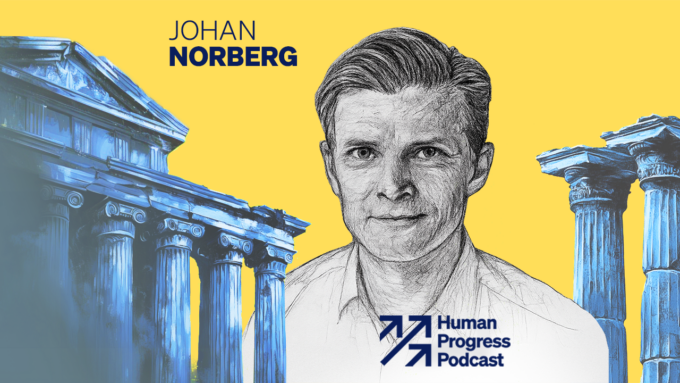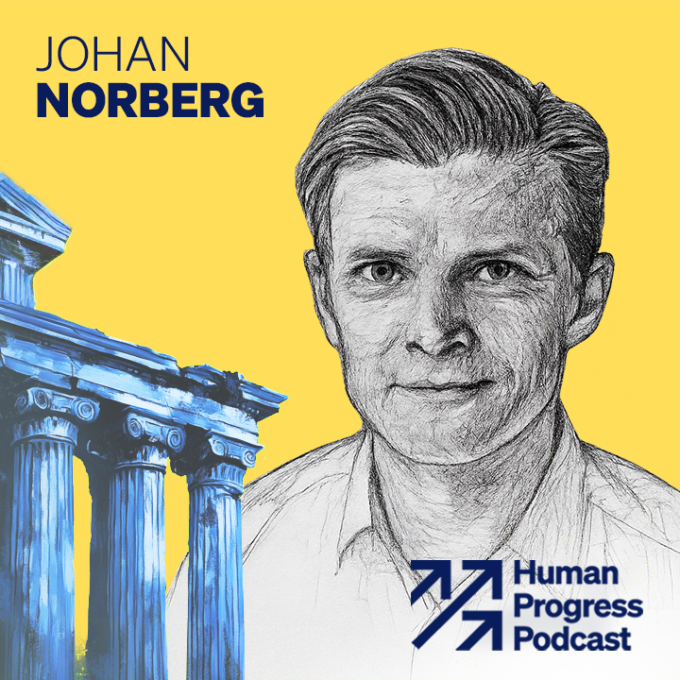Summary: Human progress depends on understanding human nature to some degree. Our blended capacities for cooperation, competition, empathy, and aggression cannot necessarily be ignored or overwritten by social engineering. Sustainable progress arises when institutions and innovations work with our evolved psychology rather than against it, channeling our instincts toward creativity, cooperation, and flourishing.
“Nature versus nurture” is a debate older than the field of psychology itself. Are we born with fixed traits, or are we shaped entirely by our upbringing? Of course, this is a false dichotomy. Both genes and environment shape most psychological traits. The real question is not nature versus nurture, but how much each contributes to different outcomes.
This question matters deeply for thinking about human progress. Any attempts at improving the human condition must be compatible with human nature, or they will risk creating more problems—such as the collapse of communist and socialist economies, for example—than they solve. And understanding human nature means grappling with our biological constraints and evolutionary history. Progress for squirrels might mean a world devoid of natural predators, where every tree grows acorns year-round. But human progress is a distinctly human concept.
As a psychologist, I am interested in the psychological foundations of human progress. To understand and sustain human progress, we must first understand the nature of the humans who are progressing. Strangely, the beings most capable of reflecting on our own values are also the most skilled at obfuscating them, as my graduate advisor, Harvard University psychologist Steven Pinker, has explored at length in his books The Blank Slate and Rationality. Many influential thinkers throughout history have questioned or outright denied the concept of human nature.
Superficially, that makes sense. Unlike some animals, which can walk and forage minutes after birth, human infants are born helpless and remain dependent on others for years. We are not born with language, and the languages we learn to speak depend entirely on the environment we were brought up in. As the English philosopher John Locke noted, all knowledge appears to come from experience, whether firsthand or taught by others. The human mind, at birth, is seemingly a true blank slate.
The blank-slate view was profoundly influential on the Enlightenment philosophy that set the stage for the miraculous forms of human progress in the coming centuries. If every baby starts out essentially the same, only advantaged or disadvantaged by their environment, then the case for equality becomes not just moral, but empirically necessary. It suggests that no one is born inherently superior, and that differences in status, intelligence, or virtue are all shaped by experience, not destiny. If all minds begin equally blank, then all individuals are capable of reason, learning, and democratic self-governance.
The idea that human nature was endlessly flexible fueled optimism, but it also began to cast blame on modern society. If we are all a product of our environments, then violence, poverty, and inequality were the results of a manipulated system. This philosophy was most famously embodied by the Enlightenment philosopher Jean-Jacques Rousseau, who believed that humans were born fundamentally good and were corrupted by society. In his view, the natural state of humanity was one of egalitarian peace, disrupted only by the emergence of social institutions that fostered competition and inequality.
The English philosopher Thomas Hobbes, in stark contrast, believed the default state of human life was solitary, poor, nasty, brutish, and short. For Hobbes, society constrained the worst of our innate impulses, and a strong legal system made crime more dangerous than cooperation. While Hobbes’s vision was often caricatured as bleak or authoritarian, modern psychology has increasingly validated his core insight. Humans are not born peaceful and rational, but possess a mix of impulses—some prosocial, others aggressive, impulsive, and self-serving. As the Canadian developmental psychologist Richard Tremblay has shown, the most aggressive humans are, in fact, toddlers. Although they cannot inflict real harm, most toddlers hit, steal, and lie as soon as they are capable. As all parents know, these innate antisocial behaviors must be patiently weaned out of children through healthy socialization and repeated instruction.
These two visions—Rousseau’s romanticism and Hobbes’s realism—have shaped centuries of thought about human nature and the role of institutions. One sees society as the source of our problems; the other sees it as the solution. Both, in their extremes, miss the full picture. We are born capable of both empathy and cruelty, cooperation and tribalism, innovation and superstition. Society both nurtures us and constrains us. Different aspects of different ideologies and institutions both facilitate and prevent human progress.
Institutions are not just abstract systems—they are extensions of human psychology. Their success or failure often hinges on how well they accommodate and channel our evolved tendencies. When institutions align with human nature, they can guide self-interest into cooperation, aggression into justice, and tribalism into civic identity. When they ignore it, they risk collapse, corruption, or unintended negative consequences.
Consider the market economy. At its best, it transforms individual ambition into mutual benefit. Entrepreneurs seek profit, but in doing so, they create goods, services, and jobs. This is not a triumph over human nature—it is a clever use of it. As the Scottish economist Adam Smith noted, “It is not from the benevolence of the butcher, the brewer, or the baker that we expect our dinner, but from their regard to their own interest.” Contrast that with utopian communes that attempt to erase hierarchy, suppress competition, or eliminate private property. These experiments often fail because they ignore deep-seated human drives for status, autonomy, and reciprocity. When institutions deny these drives, they invite dysfunction.
Successful democracies are not built on the belief that humans are all born the same, but that our differences can complement each other, given sufficient freedom and equality before the law. Checks and balances, the rule of law, and free speech are not just moral principles, but safeguards against the psychological realities that humans are fallible, competitive, and prone to power-seeking. Progress is not achieved by transcending our psychology, but by building systems that align with our best impulses and constrain our worst.
Despite these self-evident truths, discussions of progress often neglect human nature in favor of nurture. Whether arguing for government intervention in the market, increased social welfare spending, or profound cultural change, advocates of such positions share a commitment to reshaping our environments. Yet even in identical environments, outcomes vary dramatically depending on psychological factors such as trust, optimism, gratitude, and self-control. These are not variables that can be socially engineered. Instead, they are traits that arise from genetic inheritance, individual beliefs, decisions, and cultivation of habits.
Even in this almost miraculous age of superabundance—characterized by unprecedented material wealth, a high degree of freedom, and technological sophistication—many people feel lost, cynical, and devoid of purpose. To improve people’s psychological outlook, a deep understanding of human nature is necessary. That consists of considering not only our environments but also human nature itself. Without that understanding, progress can lead to unintended, sometimes negative, consequences. Material abundance can breed obesity and lethargy; excess freedom can lead to decision paralysis; technological progress can erode attention spans and lead to addiction. History shows that we are not blank slates who can be remolded into something we are not.
My role at Human Progress will be to not just examine the psychological aspects of progress—mental health, optimism, rationality, cooperation, creativity, and productivity—but to understand how progress interfaces with human nature and leads to human flourishing. In the words of the American economist Thomas Sowell, there are no solutions, only trade-offs. Progress is a negotiation between our aspirations and our nature—between what we were built to be and what we hope to become. The most enduring advances come not from denying our instincts, but from designing systems that guide them toward constructive ends.





